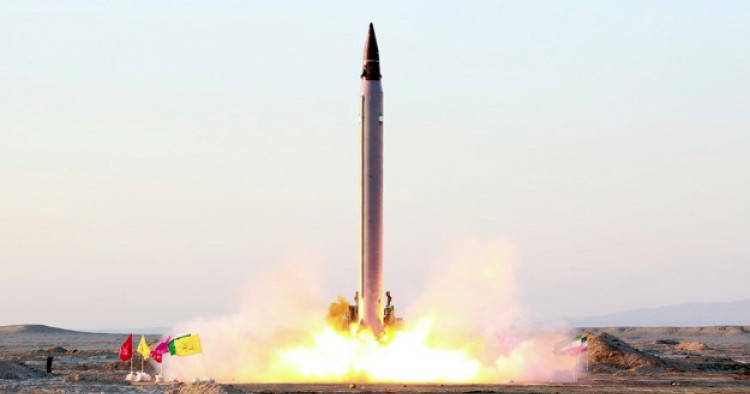Iran has increased the range, precision and longevity of its ballistic missiles and will continue to increase its defensive power, Iranian Defense Minister Brigadier General Hossein Dehghan said earlier today. “More than any time in the past, we now need to take major steps to increase our defensive power,” he emphasized. The top Iranian military official also rejected reports that the Islamic Republic had halted a military drill after warnings from Washington. During his speech, the Iranian defense minister also called for the destruction of the state of Israel.
“Today, the primary and religious duty of Muslims is to liberate Jerusalem and to destroy the cancerous seed of evil Zionism,” he told reporters in the northern Iranian city of Noshahr, adding that the United States is trying to project Iran as the enemy of the Muslim world to protect Israel. “All the new alliance-building such as the Arab NATO is an effort to confront the Islamic Revolution.”
Comment: The remarks by Dehghan, the minister of defense in the Rouhani government, are the latest indication that there is a consensus among all Iranian circles of power that the Islamic Republic should defy international demands regarding its controversial missile activities.
After Iran test-fired a new medium-range ballistic missile in late January, the Trump administration put the country “on notice” and demanded a halt to any further ballistic missile tests, arguing such a move violates the U.N. Security Council Resolution 2231. But Iran dismissed Washington’s warnings; and in a blatant act of provocation days later, the Iranian military test-fired a surface-to-air missile from the same launch pad used for the January 28 medium-range ballistic missile that triggered the tension between Washington and Tehran. The deputy commander of the Islamic Revolution Guards Corps (I.R.G.C.), Brigadier General Hossein Salami, also stressed that Iran would continue to develop its military capabilities “at all cost” and will test-fire more advanced missiles in the future.
While Iranian leaders argue that the country’s ballistic missiles do not violate the resolution because they are not designed to carry nuclear warheads, Western officials say some of the missiles Iran has tested after the 2015 nuclear deal have been "inherently capable of delivering nuclear weapons" and are "in defiance of" the U.N. resolution.
Dehghan’s call for the annihilation of Israel also further discredits Iranian diplomats’ claim that their country’s missiles are only for defensive purposes and do not pose any threat to regional countries. The Islamic Republic’s Sejjil missile with a range of about 1240 miles and its medium-range Shahab-3 can both reach Israel.
The Middle East Institute (MEI) is an independent, non-partisan, non-for-profit, educational organization. It does not engage in advocacy and its scholars’ opinions are their own. MEI welcomes financial donations, but retains sole editorial control over its work and its publications reflect only the authors’ views. For a listing of MEI donors, please click here.













